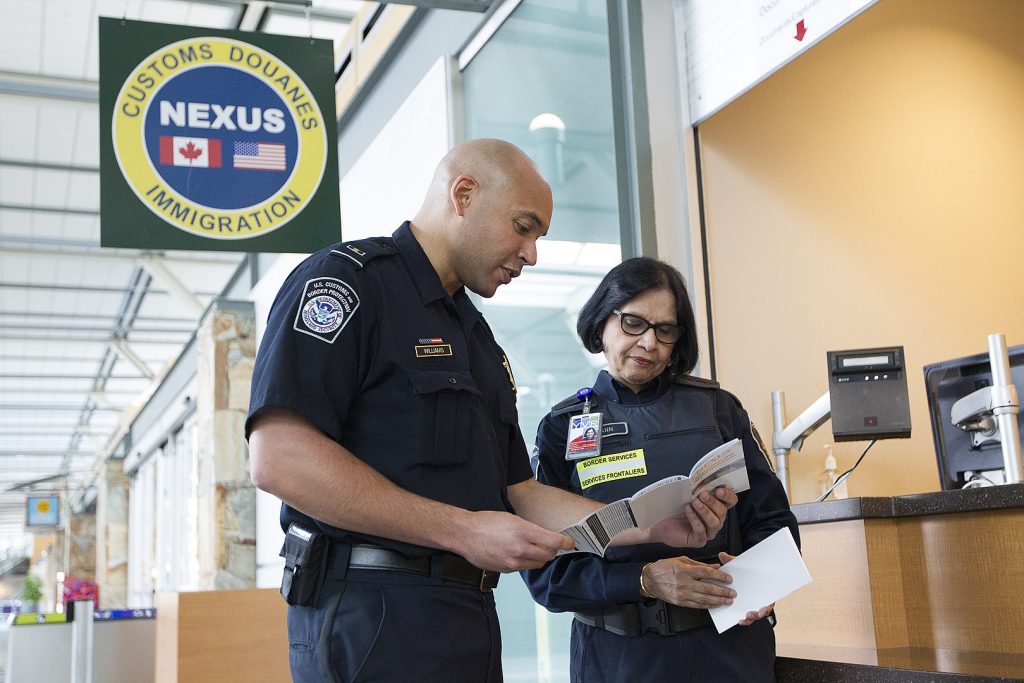Immigration
More essential workers may be allowed across border

The Canadian federal government is looking to consider more occupations as “essential work” in an effort to allow more workers to travel across the Canada-U.S. border during the COVID-19 pandemic, according to Marc Garneau, Canada’s Foreign Affairs Minister.
“We are specifically talking about different groups that would be potentially considered to be essential workers, that have the need to cross the border for specific reasons,” Garneau told a parliamentary committee.
As an example, the minister said technicians in the integrated auto industry could be considered essential workers.
Get help with Canadian work permits
Travel restrictions hurting economy
Garneau also said that the flow of goods across the Canada-U.S. border has slowed due to the travel restrictions.
“The situation is gradually changing and we are very, very sensitive to the need to recover our economies,” he said.
Millions of dollars of goods still travel between Canada and the U.S. every day. Around three-quarters of Canada’s exports go to the U.S.
Since the transportation of goods is considered essential, commercial traffic has only decreased about 8 per cent compared to pre-pandemic levels, according to traveller statistics from the Canadian border. This is significantly less than the 92 per cent drop in non-commercial land travellers. In the week starting on April 1, more than 103,000 commercial truck drivers crossed the Canada-U.S. border this year. In the same week in 2019, that number was closer to 112,000.
It is currently unknown as to when the Canada-U.S. border will officially reopen.
Garneau said the most important factor to consider before reopening the border is the health and safety of Canadians, but Canada should also consider what it needs to do to recover its economy.
Who is exempt from the travel restrictions?
Since March 18, 2020, Canada and the U.S. agreed to restrict non-essential travel between the two North American nations. These travel restrictions were initially expected to end on April 21, 2020 but were regularly extended every month since.
Only certain individuals are exempt from these travel restrictions, and are allowed to cross the border into Canada. Those include Canadian citizens and permanent residents, as well as some family members of Canadian citizens and permanent residents. Temporary foreign workers, and international students attending a school that has a COVID-19 response plan are also allowed into Canada.
Those who are exempt from travel restrictions are still required to:
- show proof of a COVID-19 Polymerase Chain Reaction (PCR) test;
- Take another COVID-19 test upon arrival;
- Stay in a government-approved hotel for three days while waiting for the test results;
- Quarantine for 14 days (the three day hotel stay is included in the 14 day period).
Essential workers currently exempt from quarantine rules
Those who are crossing the border to provide an essential service are exempt from the mandatory quarantine requirements.
This can include health care practitioners, students in a health field, workers in the trade or transportation sectors, some technicians or specialists, emergency service providers, as well as others.
Those who maintain the flow of essential goods, live in a trans-border community, regularly cross the border to work, or are receiving medical care in Canada, are also exempt from these requirements.
Get help with Canadian work permits
© CIC News All Rights Reserved. Visit CanadaVisa.com to discover your Canadian immigration options.





















